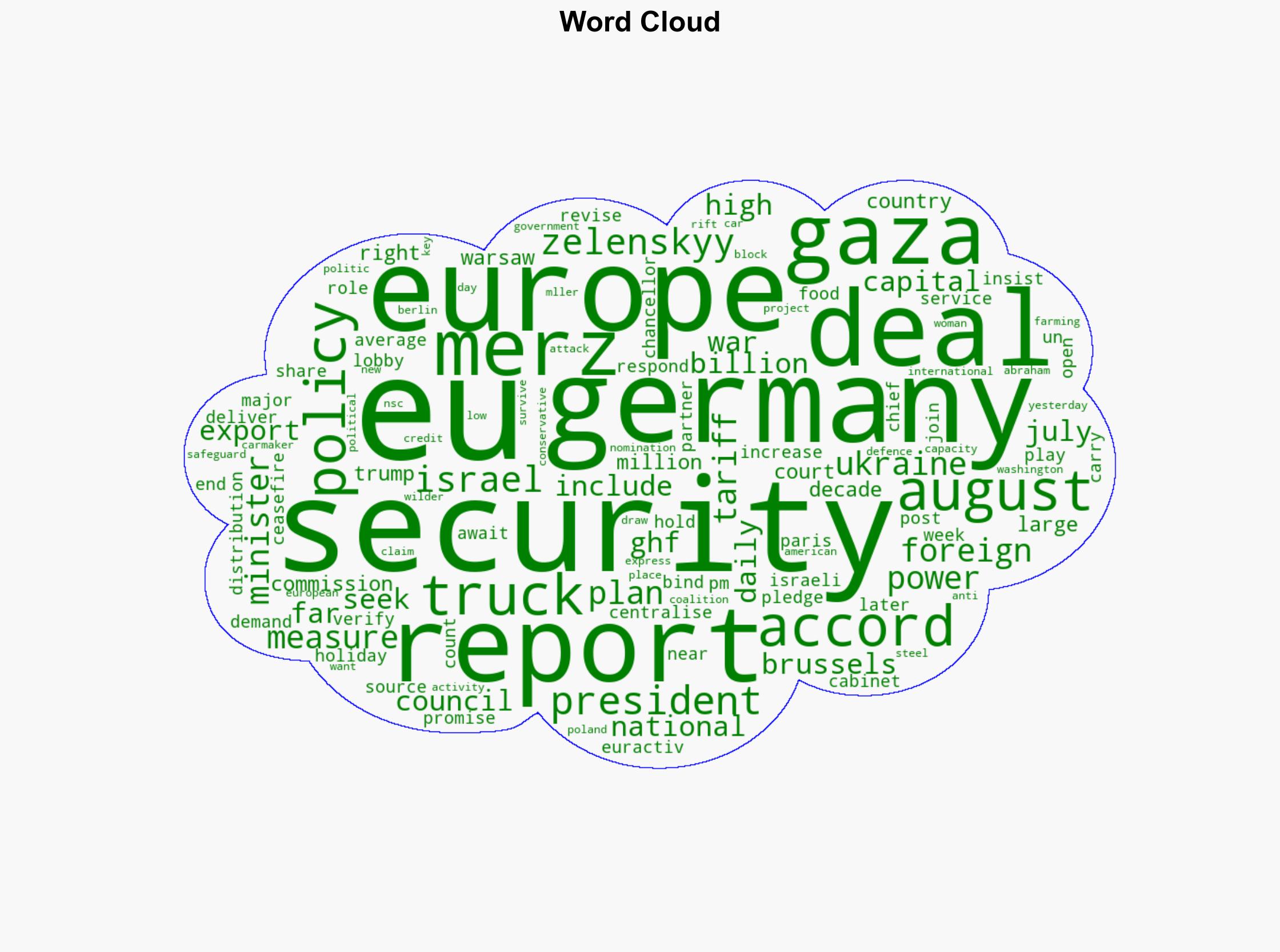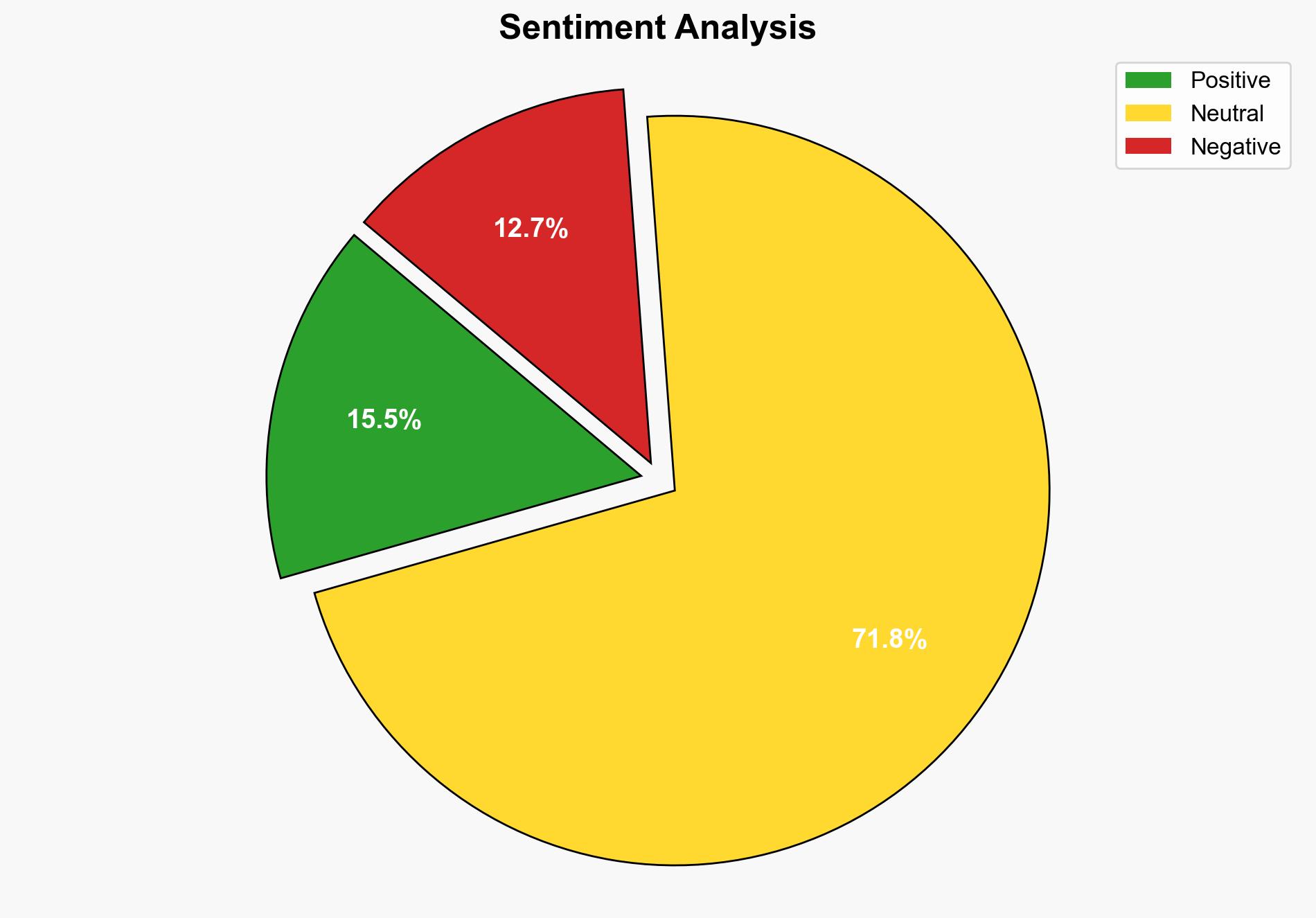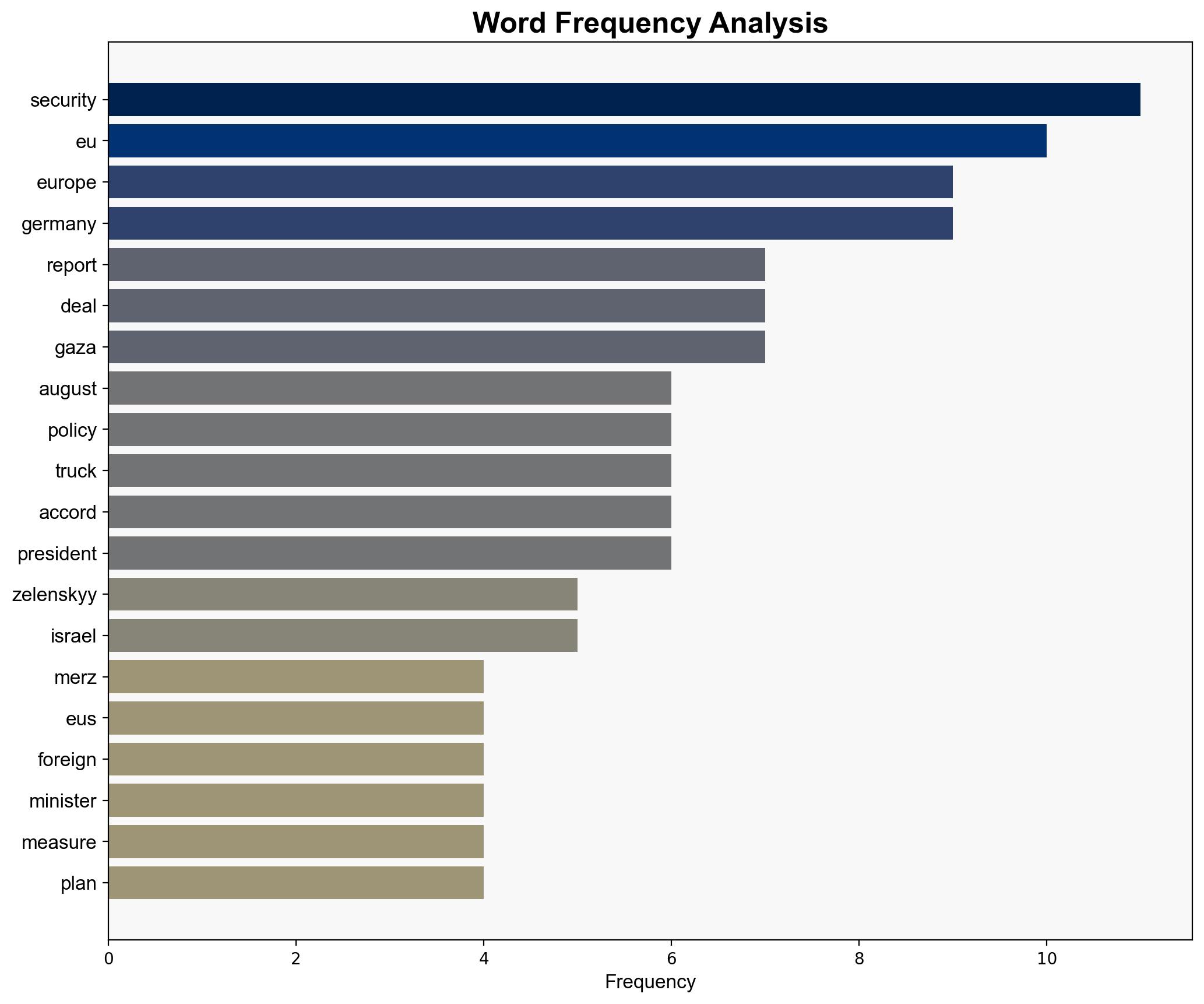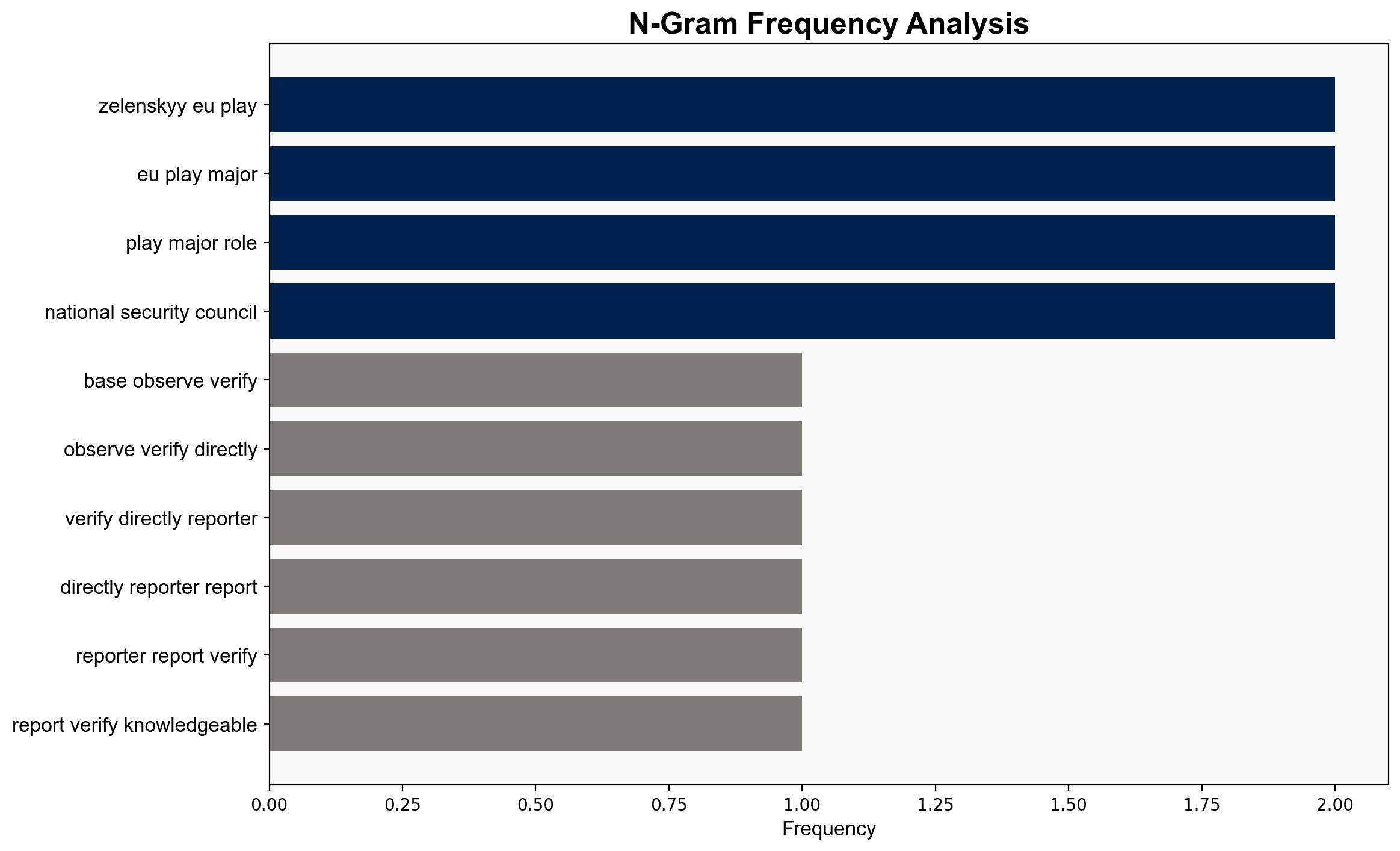Israel falls short of EU aid deal – EURACTIV
Published on: 2025-08-08
Intelligence Report: Israel falls short of EU aid deal – EURACTIV
1. BLUF (Bottom Line Up Front)
The most supported hypothesis is that the EU-Israel aid deal was not fully realized due to logistical and political constraints, rather than deliberate obstruction by either party. Confidence level is moderate due to reliance on indirect sources and lack of direct verification. Recommended action includes diplomatic engagement to clarify expectations and improve transparency in future agreements.
2. Competing Hypotheses
1. **Logistical and Political Constraints Hypothesis**: The shortfall in the EU-Israel aid deal is primarily due to logistical challenges and political complexities, including the non-binding nature of the agreement and reliance on UN data without direct Israeli access to Gaza.
2. **Deliberate Obstruction Hypothesis**: The shortfall is a result of deliberate obstruction by Israel, possibly due to internal political pressures or strategic interests in controlling aid flow to Gaza.
Using ACH 2.0, the first hypothesis is better supported by the evidence, such as the non-binding nature of the agreement and the revision of reports based on triangulated sources, which suggests logistical and political factors rather than intentional obstruction.
3. Key Assumptions and Red Flags
– **Assumptions**: It is assumed that both the EU and Israel are acting in good faith to fulfill the aid agreement. The reliance on UN data is assumed to be accurate and unbiased.
– **Red Flags**: The lack of direct verification from Israeli sources and the absence of a binding enforcement mechanism are significant red flags. The discrepancy in reported truck numbers suggests potential data manipulation or misreporting.
4. Implications and Strategic Risks
Failure to meet the aid deal terms could exacerbate humanitarian conditions in Gaza, potentially leading to increased regional instability. Politically, it may strain EU-Israel relations and impact future negotiations. Economically, unresolved issues could affect trade relations, particularly if linked to broader EU policy decisions.
5. Recommendations and Outlook
- **Mitigation**: Initiate a joint EU-Israel task force to monitor and verify aid delivery, ensuring transparency and accountability.
- **Opportunities**: Strengthen diplomatic channels to facilitate better communication and understanding of mutual expectations.
- **Scenario Projections**:
– **Best Case**: Successful renegotiation and implementation of the aid deal, improving conditions in Gaza and EU-Israel relations.
– **Worst Case**: Continued shortfalls leading to humanitarian crises and heightened tensions.
– **Most Likely**: Incremental improvements with ongoing negotiations and adjustments to the agreement.
6. Key Individuals and Entities
– Gideon Saar
– Benjamin Netanyahu
– Kaja Kallas
– Friedrich Merz
– Jacob Schrot
– Hildegard Müller
7. Thematic Tags
national security threats, humanitarian aid, EU-Israel relations, regional stability





